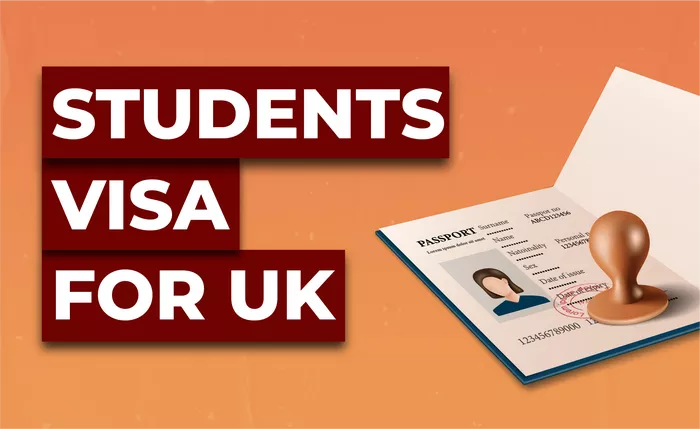Embarking on a journey to study in the United Kingdom is an exciting prospect for many international students. However, before packing your bags and setting off to explore the academic wonders of British institutions, it’s essential to understand the intricacies of acquiring the appropriate visa. The UK student visa, also known as the Tier 4 (General) visa, serves as the key to unlock a world of educational opportunities in the UK. In this comprehensive guide, we’ll delve into the specifics of the UK student visa, clarifying its categories, eligibility requirements, and the application process.
Clarify Visa Category
When it comes to pursuing education in the UK, understanding the nuances of the visa system is crucial. The term “UK student visa” encompasses various categories tailored to cater to diverse educational needs:
1. Short-term Study Visa: Designed for individuals undertaking short courses or English language programs in the UK, the short-term study visa grants flexibility for stays of up to six months (or 11 months for English language courses).
2. Child Student Visa: Specifically crafted for children aged 4-17 years old who wish to pursue their education at an independent school in the UK, the child student visa ensures a smooth transition into the British education system.
3. General Student Visa (Tier 4): The cornerstone of international students’ aspirations for higher education in the UK, the Tier 4 (General) visa is tailored for longer courses, including undergraduate and postgraduate degrees, as well as other eligible programs.
Understanding the specific requirements and limitations of each visa category is paramount for prospective students to make informed decisions regarding their educational endeavors in the UK.
Eligibility Requirements
Navigating through the eligibility criteria is a fundamental aspect of securing a UK student visa. Here’s an overview of the key requirements applicants must meet:
1. Age Requirements: Generally, applicants must be at least 16 years old to apply for a Tier 4 (General) student visa. However, there are separate provisions for the Child Student Visa, catering to younger individuals seeking education in the UK.
2. Educational Qualifications: Prospective students must have an unconditional offer of enrollment from a licensed UK educational institution for a recognized course. This offer typically takes the form of a Confirmation of Acceptance for Studies (CAS), a vital document in the visa application process.
3. English Language Proficiency: Proficiency in the English language is a prerequisite for studying in the UK. Applicants may need to provide evidence of their English language skills through recognized tests such as the IELTS, TOEFL, or Cambridge English exams.
4. Financial Requirements: Demonstrating the ability to cover tuition fees, living expenses, and any accompanying family members’ costs is essential. The specific financial requirements may vary depending on the duration and location of the course.
5. Confirmation of Acceptance for Studies (CAS): Obtaining a CAS from a licensed Tier 4 sponsor institution is mandatory for visa applicants. The CAS serves as proof of acceptance onto a course of study and contains essential details required for the visa application.
Meeting these eligibility criteria is crucial for a smooth and successful application process, ensuring that prospective students fulfill the necessary prerequisites to pursue their academic aspirations in the UK.
Application Process
Navigating the UK student visa application process can seem daunting, but breaking it down into manageable steps can alleviate the complexity. Here’s a step-by-step guide on how to apply for a Tier 4 (General) student visa:
1. Completing the Online Application Form: The first step involves completing the online visa application form on the UK Visas and Immigration (UKVI) website. Applicants are required to provide accurate personal details, course information, and details of their intended stay in the UK.
2. Paying the Application Fee: Upon completing the online application form, applicants must pay the relevant visa application fee. The fee amount may vary depending on the type of visa, the duration of the course, and the applicant’s location.
3. Attending a Visa Appointment: Depending on the applicant’s country of residence, they may need to schedule and attend a visa appointment at their nearest visa application center. During the appointment, applicants may be required to provide biometric information, including fingerprints and a photograph.
4. Providing Biometric Information: As part of the visa application process, applicants will need to provide biometric information, including fingerprints and a digital photograph. This information is used to verify the applicant’s identity and ensure the security of the visa process.
5. Submitting Supporting Documents: Alongside the online application form and biometric information, applicants must submit supporting documents to corroborate their eligibility for a Tier 4 (General) student visa. These documents may include the Confirmation of Acceptance for Studies (CAS), evidence of financial means, proof of English language proficiency, and any other relevant documentation specified by UKVI.
Following these steps meticulously and ensuring the timely submission of all required documents is vital for a successful visa application. Adhering to the guidelines and requirements set forth by UK Visas and Immigration can streamline the process and increase the likelihood of obtaining a UK student visa.
Conclusion
In conclusion, the UK student visa, encompassing various categories tailored to different educational needs, serves as the gateway for international students aspiring to pursue their academic endeavors in the United Kingdom. By understanding the visa categories, meeting the eligibility requirements, and navigating the application process diligently, prospective students can embark on their educational journey in the UK with confidence and clarity.


